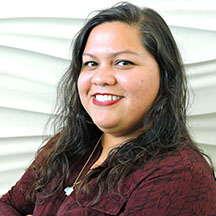
When you consider any of society’s most pressing problems, from homelessness to climate change to economic inequality, it’s clear that no one person, program or system can solve those challenges alone.
For example, homelessness is a complex problem at the intersection of housing affordability, healthcare, the justice system, and more. You’d be hard pressed to find a sector that doesn’t have a role in solving the climate crisis. Economic inequality encompasses education, the private sector, health care, transportation, the list goes on and on.
So why, despite a clear need to work across sectors to solve stubborn problems, are cross-sector partnerships the exception, not the rule?
Below are three reasons why I think cross-sector partnership are uncommon, and how I think funders can build bridges between systems to tackle big, complex challenges.
Challenge 1: Systems are perfectly designed to produce the exact results they’re getting.
Read More
The American public education system has largely failed to foster environments where the innate greatness of Black boys is even acknowledged, much less fully expressed or realized. They are often viewed as problems to be contained, which is evident in the criminalization of their behavior. Black boys are suspended and expelled at three times the rate of white students. They are overrepresented in special education and underrepresented in challenging course work like Advanced Placement (AP) classes, a disparity owed to implicit biases carried by educators and others who assume Black boys aren’t ‘college material.’
That’s why the work happening in the Oakland Unified School District (OUSD) is so exciting. OUSD knew it was failing Black boys, so it turned to Chris Chatmon, who had nearly ten years of experience successfully removing barriers to success and closing opportunity gaps that prevent Black boys from reaching their full potential, and the district’s Office of African American Male Achievement (AAMA) was born.
Read More
One of the most important aspects of creating transformative change is making sure that those most impacted by problems are meaningfully involved in the development and implementation of solutions.
And while centering those most impacted by a problem might seem like common sense, impacted-communities and people are often the last folks to be consulted by would-be problem solvers. Fortunately, that’s starting to change, but as more and more philanthropists and nonprofit leaders wake up to the need for authentic engagement with impacted-communities, they’re running into a new problem.
How?
How do you engage people with lived-experience in change? How do traditional decision makers meaningfully share power?
I feel very fortunate to have been a part of an organization that’s been focused on answering that question for more than a decade. As the former Director of Youth Programs at The Mockingbird Society, I saw firsthand the incredible change that can happen when young people from across Washington state have the opportunity to meaningfully shape the foster care and homelessness systems for themselves and for those who will come after them.
Read More

We’re excited to announce the newest member of the Raikes Foundation youth homelessness team, Paula Carvalho. Paula was the Director of Youth Programs at The Mockingbird Society, where she oversaw the organization’s statewide dual focus on youth development and systems reform.
Paula will help lead the Foundation’s work to support coordinated community efforts to address youth homelessness. Having both lived experience in foster care and youth homelessness, she balances deep professional experience with compassion and perspective to policy analysis, leadership across the sector, and collaboration with youth.
“Paula is the leader we need in youth homelessness,” says Casey Trupin, director of youth homelessness at the foundation. “Her deep commitment to authentically engaging young people in the decisions and programs that impact their lives will be an invaluable asset to our work moving forward.”
Read More